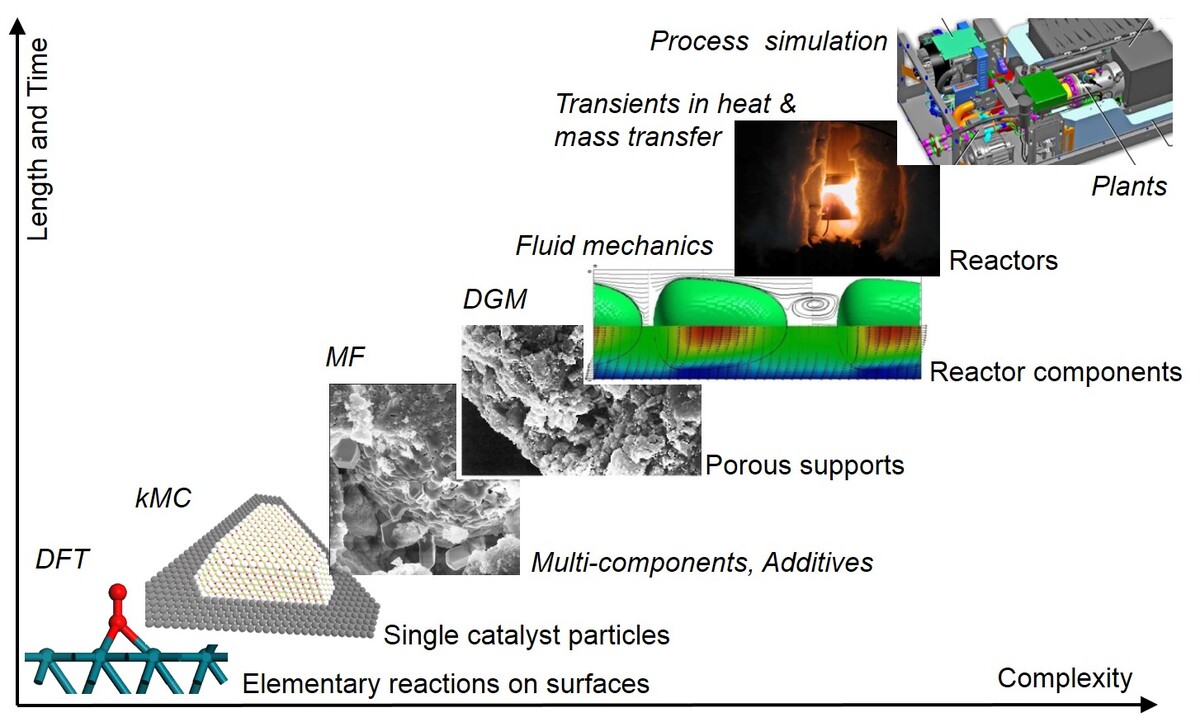Modeling and Simulation Section
Research conducted by the "Modeling and Simulation Section" focuses on the development and application of mathematical models and computer programs to understand chemical reactors and on the optimization of their designs and operating conditions based on the findings obtained. For this purpose, a multi-scale approach (see Figure) is pursued, which extends from the description of molecular processes to numerical simulation of technical plants. Model development and knowledge-based design of technical processes are based on close cooperation of the experimental working groups of the institute.
Work concentrates on gaseous flows, gas-liquid flows as well as on macrokinetics and materials data, with chemical conversion being based mainly on heterogeneously catalyzed reactions. We apply numerous tools from the molecular scale up to the technical scale:
- Quantum mechanics calculations by means of the density functional theory to understand elementary processes and determine activation energies on catalysts;
- development of detailed reaction mechanisms for heterogeneously catalyzed and homogeneous gas-phase reactions;
- kinetic Monte-Carlo simulations to understand the interaction of diffusion and reaction of catalysts;
- simulation of mass and heat transfer and reaction kinetics in fluid and porous structures;
- numerical flow simulations (computational fluid dynamics);
- process simulation and thermodynamic calculations.
The projects executed at the interface of chemistry/energy/environment are embedded in the research activities of the institute. Presently, we are studying the catalytic conversion of natural gas and liquid fuels as well as of biomass into hydrogen, synthesis gas, and olefins for chemical applications and energy production. In particular, molecular reaction mechanisms are analyzed by numerical flow simulations. In addition, work focuses on various stages of the bioliq process, supercritical systems, Taylor flows in microstructures, bubble columns, pyrolysis, catalytic combustion, partial oxidation, and reforming.
Work is performed in close cooperation with the Institute for Chemical Technology and Polymer Chemistry (AK Deutschmann).
Detailed information on the research projects can be found on the websites of the working groups and at: www.itcp.kit.edu.

